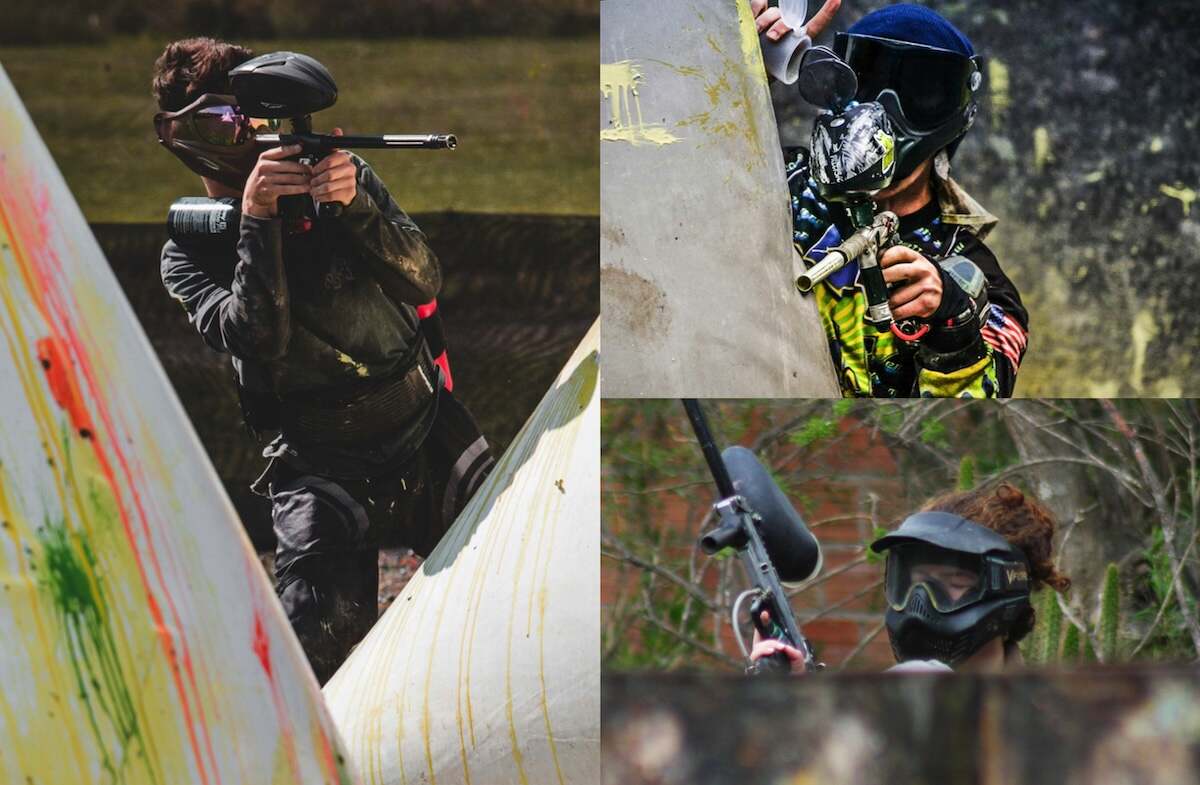
There are more than a dozen indoor and outdoor paintball destinations between the BC Lower Mainland and Vancouver Island. The activity has grown from the fringes of society to becoming a full-fledged sport, with national and international league tournaments taking place all over the world. Whether you’re a part of a league or you are a hardcore enthusiast with aspirations of going pro, you are all too familiar with the aches and pains associated with regular participation. The surface bruises and contusions from being hit by the activity’s projectiles are a given, especially if you do not wear adequate protection. Those heal with time. However, you have noticed that you are exhibiting other aches, pains, and malfunctions that cooccur with “paintball season” that you need to identify and alleviate in order to remain competitive. Read ahead for insight into paintball injuries along with a call-to-action to seek intervention from a full service physiotherapist.
Common Non-Contusion Paintball Injuries and How Physiotherapy Will Help You Recover and Optimize Performance
Other Paintball Injuries to Be Aware of
Hand and Wrist Injuries:
Paintball requires repetitive hand and wrist movements when keeping one’s finger on the trigger and squeezing to shoot targets. This compresses the median nerve in the wrist and may manifest as carpal tunnel syndrome. Symptoms to watch out for include numbness and tingling sensations along with fatigue and weakness in the fingers. Your reaction and response time will be significantly reduced which can render your torso a neon-paint mess as you’re sent packing back to base camp. The same physiotherapy treatments applied to those who get carpal tunnel syndrome from working on the computer all day (or playing the drums, et cetera) will alleviate carpal tunnel and other related hand and wrist issues.
Shoulder Injuries:
Rotator cuff injuries are also relatively common among paintballers. Symptoms you may note on the field, in the forest, or in an indoor facility include shoulder pain, weakness, and instability. They occur as a result of repetitive at-level or overhead movements involved in aiming, shooting, and climbing (where applicable). Click here for a breakdown of the four types of rotator cuff injuries you may experience along with a detailed map of treatments and how long it will take to recover.
Paintball may require that participants walk and run with heavy loads (protective gear, reload packs, etc.) while maintaining a heads-up position to monitor for threats. This can lead to neck injuries including (but not exclusive to) hyperextension injuries, laryngeal fractures, and traumatic pseudoaneurysms. A full service physiotherapy clinic with a chiropractor on staff can employ one or more of these neck treatments to make you whole again.
Back Injuries:
Back injury is less directly connected to the specific movements of paintball, but the risk exists due to the strenuous nature of the physical activity and weight load a given player carries. Further, if a paintballer enters into competition with a predisposition to lower back pain or underlying malfunctions relating to postural alignment they will be more likely to sustain a back injury. A full service physiotherapy clinic with a chiropractor on staff will perform a comprehensive assessment to check for these issues.
Ready to optimize your paintball performance? Take a shot at physiotherapy today by scheduling a consultation to identify issues and receive a customized treatment strategy.
Let Physiotherapy Help You Hit Your Targets
(Burnaby and Vancouver residents)
